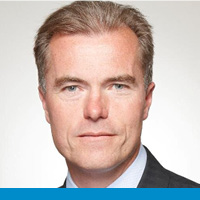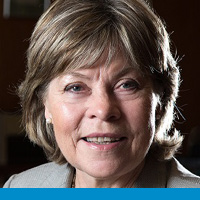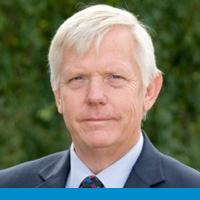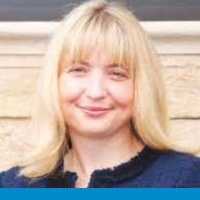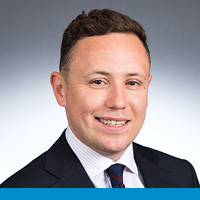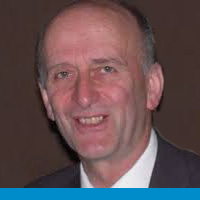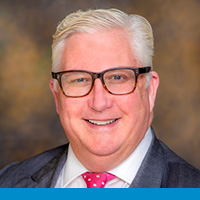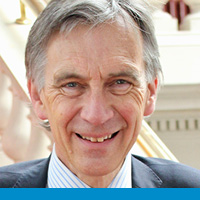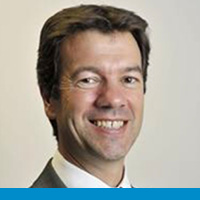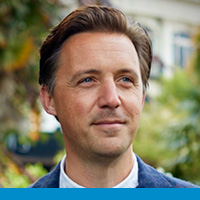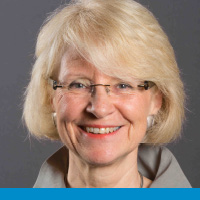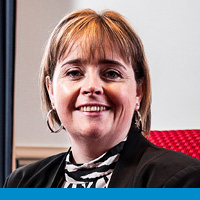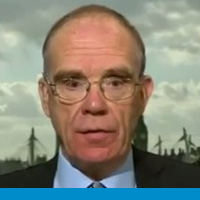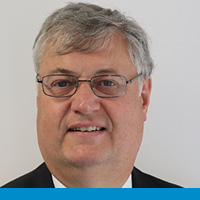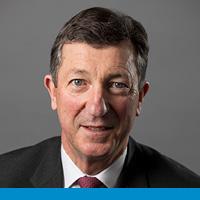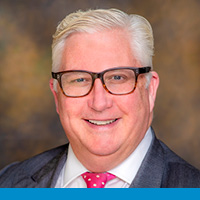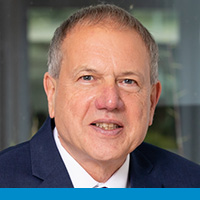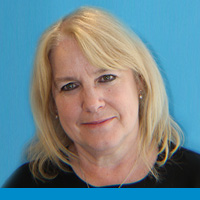The LGA Conservative Group produces an annual report so that Conservative councillors are kept informed about our activities and the wider work of the corporate LGA. We hope that you will find this publication, which covers the 2021/2022 LGA year and includes reports from our senior members, to be useful.
Introduction from Councillor James Jamieson OBE and Councillor Izzi Seccombe OBE
Over the past couple of years Conservative councils and councillors have played a crucial role in responding to the unprecedented challenges of COVID-19.
You helped tens of thousands of rough sleepers and homeless people off the streets at the start of the pandemic, shielded millions of our most vulnerable residents from the virus, and provided billions of pounds in grants to businesses, to give just a few examples of the extraordinary work that you undertook alongside ‘routine’ activities such as carrying out refuse collections, dealing with planning applications and filling in potholes.
Working with our NHS partners, you also assisted with the world-beating vaccine rollout − providing venues and staffing support − as well as tackling vaccine hesitancy.
COVID highlighted the immense value of the local leadership provided by councillors and council staff throughout the country, and we would like to take this opportunity to place on record our thanks to you for your exceptional leadership throughout the pandemic.
We would also like to thank you for all that you have done, at short notice, to welcome those escaping to the UK from Putin’s illegal war in Ukraine through the ‘Homes for Ukraine’ scheme and those fleeing the Taliban through the Afghan Citizens’ Resettlement Scheme.
Using the information that you have provided us with, we have raised various issues in relation to the ‘on the ground’ implementation of both schemes with the Minister for Refugees, Lord Harrington, with whom we have had excellent engagement. We look forward to continuing this dialogue over the coming year to ensure that councils can continue to offer a safe and warm welcome to those escaping conflict and persecution.
Following the removal of restrictions earlier this year, and as we learn to live with COVID, attention at both a local and national level is increasingly turning to those issues that prior to the pandemic you highlighted as being the most important to you and your communities.
Along with colleagues from the County Councils’ Network (Councillor Tim Oliver), the District Councils’ Network (Councillor John Fuller and, from October 2021 onwards, Councillor Sam Chapman-Allen), London Councils (Councillor Teresa O’Neill) and the Conservative Councillors’ Association (Councillor Mark Hawthorne and, from February 2022 onwards, Councillor Philip Broadhead) we have had regular meetings with our Secretary of State, Michael Gove, since his appointment last September.
These meetings have allowed us to raise issues of immediate importance as well as more strategic matters. We are extremely grateful to Michael for taking time out of his busy schedule to meet with us, and also to the other ministers in the Department for Levelling Up, Housing and Communities (DLHUC) for the meetings and engagement we have had with them.
Examples of key legislative ‘wins’ for the LGA over the past year include the provisions in the Building Safety Act to protect leaseholders from the costs of historical building safety defects; the proposals in the Levelling Up and Regeneration Bill to give all areas in England the opportunity to benefit from further devolution, and also the focus on a local, plan-led system to allow councils to deliver the right types of homes in the right places, with appropriately funded infrastructure; and the Schools Bill containing provisions to allow councils to establish their own multi-academy trusts as well as the establishment of a compulsory register of children not in school (both longstanding LGA ‘asks’)
We look forward to working with the Government and parliamentarians on these and other important issues over the coming year, as well as maintaining our dialogue in relation to the proposals made in the recently published Health and Care Integration White Paper, the NHS Reform Plan, the SEND and Alternative Provision Green Paper, and the Fire Reform White Paper, as well as the more longstanding issues related to the Planning White Paper.
Elsewhere in this report, the summaries from our lead members on the LGA’s various policy boards outline the work that they and their Conservative colleagues have undertaken across a wide range of policy areas, and we hope that you find these useful and informative.
In terms of local government funding, there have also been some notable ‘wins’ for the LGA over the past year, including the fact that the three-year UK Shared Prosperity Fund (UKSPF) programme, worth £2.6 billion, will be led by councils and combined authorities through a funding allocation process, and with provision to build capacity, as the LGA has consistently called for.
Other key funding announcements include, to name but a few, £4.8 billion of new grant funding over the Spending Review 2021 period for social care and other services; the continuation of the £111 million ‘lower tier services’ grant to councils with responsibility for services such as homelessness, planning, recycling and refuse collection, and leisure services; £1.55 billion in COVID-19 expenditure pressures grants; £174 million for councils to support rough sleepers into long-term homes; £1.2 billion for the rollout of gigabit-capable broadband (part of the £5 billion programme to support the hardest to reach areas of the UK); £56 million for councils to support the safe reopening of high streets; and £52 million in funding for museums and cultural and sporting bodies to support their recovery from COVID.
This year’s local elections took place in a much more difficult political context than last year’s delayed contests. We would like to congratulate all those who were re-elected or newly elected and commiserate with those who were unsuccessful. We know how hard colleagues worked, and we are disappointed that in many cases that effort was not rewarded.
Whilst the results overall were disappointing there were some bright spots, including gaining control of Harrow Council from Labour, winning the inaugural Mayoral election in Croydon and the new North Yorkshire unitary, and making net gains in Amber Valley, Barnsley, Basildon, Bolton, Brent, Cannock Chase, Croydon, Enfield, Halton, Harlow, Hartlepool, Hounslow, Hyndburn, Newcastle-under-Lyme, Nuneaton and Bedworth, Oldham, Rochdale, Salford, Sandwell, Slough, Sutton, Tameside, Thurrock and Wirral.
Despite the losses that we suffered, we remain the largest party in local government and the largest group at the LGA, meaning that we retain the LGA chairmanship for the next year – a remarkable achievement given that we have been in power nationally for 12 years.
In addition to this annual report we regularly communicate with you in various other ways throughout the year, including our fortnightly email bulletins through which we aim to keep you updated on key policy announcements, lobbying activity and forthcoming events.
We are also on Twitter, so please do follow us at @LGACons for all the very latest news and views from the LGA and the Conservative Group.
The LGA tries to be as accessible as possible to all members and its regular Councillors’ Forum meetings are open to all councillors from member authorities who wish to attend.
The Councillors’ Forum is often attended by government ministers, and over the past year we have welcomed Michael Gove, Kwasi Kwarteng and Gillian Keegan, as well as various other topical speakers.
The Conservative Group meeting beforehand also offers an ideal opportunity for us to discuss key issues in a private political setting, and we are often joined by government ministers as well as other leading parliamentarians, officials from Conservative Campaign Headquarters, etc.
Details about forthcoming Councillors’ Forum meetings are included in our monthly bulletin, and if you wish to attend, please email the group office.
As we embark on what is hopefully now a return to normal life, we look forward to seeing many of you at these meetings and the many other LGA and Conservative Group events that will be organised over the coming year.
LGA Conservative Group Executive – 2021/2022
The LGA Conservative Group Executive oversees and directs the work of the Conservative Group. The members of the executive for 2021/2022 were:
LGA Chairman – Councillor James Jamieson OBE (Central Bedfordshire Council)
Conservative Group Leader – Councillor Izzi Seccombe OBE (Warwickshire County Council)
Conservative Group Deputy Group Leader – Councillor John Fuller OBE (South Norfolk District Council)
County Council Executive Member – Councillor David Fothergill (Somerset County Council)
Non-Met District Council Executive Member – Councillor Linda Robinson (Wychavon District Council)
London Borough Council Executive Member – Councillor Joanne Laban (London Borough of Enfield)
Metropolitan Council Executive Member - Cllr Nicholas Jones (Bury Metropolitan Borough Councill
Unitary Council Executive Member – Councillor Paul Bettison OBE (Bracknell Forest Council)
'At Large' executive members (four positions):
Councillor Philip Atkins OBE (Staffordshire County Council)
Councillor Kevin Bentley (Essex County Council)
Councillor Rory Love OBE (Kent County Council)
Councillor William Nunn (Breckland District Council)
Ex officio – Chairman of the Conservative Councillors’ Association – Councillor Phil Broadhead (Bournemouth, Christchurch and Poole Council)
LGA policy boards
The LGA is a politically-led organisation, and the members who are appointed to serve on its various boards are responsible for developing its lobbying and policy formulation activities.
The LGA’s political groups make annual appointments to the boards. The number of places and lead member positions (chairman, vice chairman and deputy chairman) that have to allocate are determined by the LGA’s proportionality figures which are calculated every May after the local elections.
The following summaries from our Conservative lead members outline the work that they and their colleagues have undertaken on your behalf over the past year.
We hope that you find these summaries useful. Further information about each board, including a list of all the Conservative representatives who serve on them, is available on the LGA website.
Councillors are appointed to serve on these boards annually. Nomination forms are sent to Conservative group leaders in June, the appointments are made in July, and they take effect at the start of the new LGA year on 1 September.
In September, the LGA holds a cross-party briefing day for all those who have been appointed to the boards. This is an opportunity for senior members to outline the LGA’s priorities for the coming year and for those attending to ask questions or raise issues.
Each Conservative council group leader can nominate up to three councillors from their group, and those councillors who are interested in being appointed are asked to indicate which board(s) they are interested in serving on and whether they wish to be considered for the lead member position. Applicants are also asked to provide a short statement outlining their experience and suitability for the role.
We make a conscious effort to appoint opposition councillors as well as those from groups that are in control to ensure that a wide range of voices and experiences are heard. In making the appointments the LGA Conservative Group Leader considers various factors.
The experience and expertise of each applicant, combined with the information that is included in the personal statement, is obviously important. We are also very careful to ensure that the appointments reflect our strength geographically as well as representing all the tiers of local government.
Each year we are heavily oversubscribed, with some boards being particularly popular, so we cannot offer a place to everyone who puts their name forward. However, vacancies do occur throughout the year, and we keep every application form on file for consideration as and when these arise.
Ultimately, when making the appointments each year we want to ensure that we have a strong and varied team that is reflective of Conservative councillors across the country, which promotes and showcases the very best in talent from Conservative local government, and which will provide a strong Conservative voice within the LGA.
Children and Young People Board – Councillor Teresa Heritage
The Children and Young People Board is responsible for the LGA’s activity relating to the wellbeing of children and young people, including education, social care, health and early years.
I would like to start by thanking you all for everything that you have done throughout the pandemic to keep children safe, to ensure they have continued to get the education they deserve, and for supporting families through an extraordinarily difficult time.
As the country recovers from the pandemic, the board has been able to adopt more of a strategic focus over the past year, including responding to various important announcements from the Government that come under our remit.
Reflecting the concerns of LGA member councils, issues around special educational needs and disability (SEND) provision have been a longstanding priority for board members, so we were pleased that the Government published a SEND and alternative provision Green Paper.
This important document sets out a vision for a single, national SEND and alternative provision system that will introduce new standards in the quality of support given to children, whilst also proposing a simplified Education, Health and Care Plan, and a new legal requirement for councils to introduce local inclusion plans. There is also a focus on ensuring mainstream education is more inclusive and better at identifying and supporting needs.
In our media response to the Green Paper, the LGA highlighted the fact that councils, as convenors of local SEND systems, will be able to bring education and health partners to the table where everyone is accountable for SEND provision. We also produced a detailed briefing with our views on the SEND Green Paper which I hope you will find interesting.
At the same time, DfE published its Schools White Paper. This sets out the Government’s ambition for a school system that helps every child in England to fulfil their potential. It also looks to define the roles and responsibilities of all those involved, as well as setting out how councils will have the powers to deliver in their role at the heart of the new system.
In our media response to the White Paper, the LGA said it was pleased that government had acted on our call for councils to be allowed to set up their own Multi Academy Trusts. You can find a detailed briefing with our views on the Schools White Paper on our website.
We were pleased to see these proposals taken forward in the Schools Bill in the Queen’s Bill, and I welcomed the LGA statement on Queen’s Speech: Schools Bill and the proposal for a compulsory register for children not in school. While for some children home schooling can be a positive experience, we have long called for a register to ensure that children are receiving a suitable education in a safe environment, as well as the tools and flexibilities for councils to check home schooling.
There was also much to support in the findings of the Independent Review of Children’s Social Care which is a once-in-a-generation opportunity to reform the systems we have in place not only to keep children and young people safe, but to help them thrive.
The report reflects many longstanding calls from councils, including an increased focus on family help, more support to keep children with their families wherever possible, and ensuring children in care and care leavers are supported with loving homes and lifelong relationships. I was also pleased that the report recognises that councils are best placed to deliver these services for local families and highlights the good practice that already exists.
The LGA will work with government and partners to identify elements of the report we can and should swiftly implement, as well as planning the medium-to-long term reform process. This should include a commitment from across Whitehall to tackle those issues children’s social care cannot solve alone, including access to health services, workforce challenges and a lack of suitable homes for children in care with particularly complex needs.
Finally, a special mention to all of you reading this who have recently become a lead member for children’s services. From personal experience I know what an exciting and important role this is, but equally assuming such responsibility can also be daunting.
As such, I would like to highlight the 'Must knows' for lead members for children's services section on the LGA website. This suite of information focuses on the key issues that lead members have to deal with, and I hope that you will find it useful.
City Regions Board – Councillor Abi Brown
The City Regions Board has responsibility for LGA activity in relation to growth, transport, infrastructure, skills and wider public service reform. Its membership is drawn from the Core and Key Cities, SIGOMA and the London boroughs.
The Levelling Up White Paper was released in February, and the LGA published a briefing note Levelling Up White Paper: LGA briefing and press release LGA statement: Levelling Up White Paper, in response to the Government’s ambition to pursue 12 national missions and proposals relating to a new devolution framework, a plan to streamline growth funding, a new independent data body and the creation of a levelling up advisory council.
Following the announcement of a Levelling Up and Regeneration Bill in the Queen’s Speech in May, we are working with DLHUC to shape this legislation to ensure it helps councils level up and deliver greater devolution.
Meanwhile, with our colleagues on the People and Places Board we have launched an inquiry into how ‘levelling up’ might strengthen local communities. The Levelling Up Local Inquiry will focus on the role of local leadership in shaping a recovery that works for all, and its steering group comprises representatives from business, academia, think tanks, community groups and government organisations.
As part of the inquiry, four roundtables are being held which will focus on funding and alignment, leadership, productivity and prosperity, and place and identity. Two have already taken place and a final set of recommendations will be published in the autumn.
We have continued to work with the Community Wellbeing Board (CWB) on issues related to health devolution, and in particular the implementation of Integrated Care Systems (ICSs). We raised concerns about the exclusion of councillors from Integrated Care Boards (ICBs) and were pleased that Government revised guidance to permit councillors to sit on ICBs.
Alongside the People and Places Board, we supported the Business in the Community (BITC) Place Taskforce to launch a new report ‘Partnerships in Place: The Business of Levelling Up’ which examines the role of business and cross-sector partnerships in place-based regeneration.
I was pleased to sit on the taskforce, and the report provides recommendations on the role business can play in delivering the ‘how’ of the Levelling Up White Paper, as well as the foundations that are needed to transform communities.
In March, the Board held its first Urban Summit which brought together a broad cross-section of academics, international representatives, politicians and business representatives to explore the challenges facing cities today, and to look ahead to the role of cities in delivering the Government’s levelling up agenda and tackling the challenges of the future.
Finally, as this was my last year as the Conservative Group lead on the board, I would like to thank all of my colleagues over the past four years for their contributions and support, and wish everyone well for the coming year.
Community Wellbeing Board – Councillor David Fothergill
The Community Wellbeing Board works to support local government in the delivery of its public health, health protection and mental health responsibilities, as well as issues relating to an ageing society and the reform and funding of adult social care.
Adult social care funding remains the predominant concern of the board, and one of the LGA’s key lobbying priorities. Working with our LGA Chairman, Councillor James Jamieson, we have been, and continue to be, extremely active in relation to this with our member councils, with the Department for Health and Social Care (DHSC), and with national partners.
We have produced detailed briefings for councils on the Government’s ‘Build Back Better’ plan and its Social Care White Paper, and we included a comprehensive section on adult social care in the LGA’s Spending Review submission.
We have also made our views known to parliamentarians through debate and Bill briefings and evidence to select committees, whilst also proactively leading the news agenda (for example, with our recent story setting out our, and councils’, concerns about the adequacy of funding for the Government’s charging reforms).
We remain driven by the desire to ensure councils have the resources and capacity they need to be sustainable in the short- and long-term, as well as successfully deliver on the reform agenda. Underpinning all of this of course is the need to ensure that those who need care and support are able to live the lives they want to lead.
We have also responded to the important announcements that have been made throughout the past year, such as the Health and Social Care Integration White Paper, which aims to bring the NHS and local government closer together to improve care and value for money.
The plan includes proposals to improve data sharing, introduce personalised care and to strengthen the earlier intervention support that could prevent diseases from progressing and reduce the need for invasive and expensive interventions later on.
As I said in the LGA’s media response, I was pleased to see the important role councils play in joining up health and care services recognised in the White Paper, as well as the focus on prevention and providing care and support to people in community settings.
The board also considered the proposals in the Health Care and Bill (now Act). The focus on improving health and wellbeing through greater integration between NHS organisations and between the NHS and local government is positive, and we also support the duty on the integrated care board and all local authorities within the integrated care system to have regard to the integrated care strategy in making decisions.
Looking ahead, in the Queen's Speech the Government announced that it will publish draft legislation to reform the Mental Health Act. As I said in our media release, the LGA strongly supports the reform of the Mental Health Act and welcomes the Government’s ambition to achieve meaningful change for people living with severe mental illness.
Finally, as this was my first year chairing the board, I would like to take this opportunity to thank my Conservative colleagues for their support and contributions during what has been a challenging 12 months.
Culture, Tourism and Sport Board – Councillor Peter Golds CBE
The Culture, Tourism and Sport Board provides strategic oversight of all the LGA’s policy and improvement activity in relation to libraries, the visitor economy, sport and physical activity, the arts, museums, public parks, and heritage.
It has been another busy year, but once again council services have risen to the challenges posed by the pandemic, with leisure centres supporting testing and vaccination roll outs and tourism teams supporting businesses as they adapt and recover from lockdown, to give just a couple of examples.
I would like to take this opportunity to acknowledge and pay tribute on behalf of Conservative colleagues on the board to the immense contribution – ranging from the digital adaptability of libraries, museums and galleries to our sports sector working tirelessly to support physical and mental wellbeing, and much else besides – that our leisure, culture, sport and tourism services made to communities across the country throughout the pandemic.
In the autumn, our board started its cycle of meetings with the launch of ‘Securing the future of public sport and leisure services’, in partnership with APSE and CLOA.
Hosted by the LGA Chairman, Councillor James Jamieson and featuring presentations from LGA President Baroness Tanni Grey-Thompson and APSE Chief Executive Paul O’Brien, this was attended by around 100 MPs, peers, civil servants and council representatives.
Following on from this, earlier this year we also launched our new Independent Commission for Culture and Local Government.
With councils being the biggest public funders of culture − spending over £1 billion a year in England alone on 3,000 libraries, 350 museums, 116 theatres, and numerous castles, amusement parks, monuments, historic buildings and heritage sites − the commission will seek to demonstrate the key contribution that council-funded cultural activities can make to levelling and our recovery from COVID. Please do visit the website to find out more about its work.
Speaking of levelling up, it was encouraging to see the Levelling Up White Paper recognise the value that culture, tourism and sport brings to communities. Over the coming year we will be working with government to ensure that their importance is recognised in delivering many of the missions contained in the White Paper.
In March, our board meeting took place in Coventry at the invitation of our Conservative colleague, Councillor Gary Ridley. The board was able to see how Coventry has risen to the challenge of being a City of Culture during an international pandemic.
I would like to take this opportunity to thank Gary and all the other Conservative members of the board – Councillor Barry Lewis, Councillor Phil Seeva, Councillor Steve Hastings, Councillor Bradley Thomas, Councillor Anne Welburn, Councillor Mandy Chilcott, Councillor David Jeffels and Councillor Neil Jory − for their hard work and contributions over the past year. They are all strong champions for the opportunities that the culture, tourism and sport sector provide, whilst also ensuring that a strong Conservative voice is heard both within the LGA and at external meetings and events.
Finally, for all the latest news from the board throughout the year please do follow us on Twitter @LGAculturesport, and if you wish to share good practice or raise an issue for the LGA to look at please email [email protected]
Environment, Economy, Housing and Transport Board – Councillor David Renard
The Environment, Economy, Housing and Transport Board provides strategic oversight of the LGA's policy, regulatory and improvement activity in relation to the economy and the environment, including transport, local economic growth and regeneration, housing, planning, flood risk management, waste and climate change.
I am pleased to begin this report by reporting a number of ‘wins’ for the board’s lobbying. These include securing significant changes to the Building Safety Act so it works better for councils and residents, with leaseholders being protected from the costs of historical building safety defects (a measure that, as Chairman of the Grenfell Working Group, I particularly welcome), and the Levelling Up and Regeneration Bill, which was announced in the Queen’s Speech, containing provisions for a local, plan-led system to allow councils to deliver the right types of homes in the right places, with appropriately funded infrastructure.
The announcement of an additional £150 million funding for bus and light rail operators until October 2022 also followed calls from the LGA and partner organisations for an extension of emergency support for local bus services. The Bus Recovery Grant was due to finish at the end of March, but with passenger numbers having not yet recovered from the pandemic there was a risk that services and routes would be lost without such support.
As the board chairman I have had the opportunity to give evidence to parliamentary committees on behalf of the LGA on various occasions, including during the committee stage of the Building Safety Bill, to the Transport Select Committee on the National Bus Strategy, and to the Levelling Up, Housing and Communities Select Committee’s inquiry into social housing.
Partnership working with DLHUC is an important part of the board’s remit, and last autumn I was pleased that we were able to collaborate together on the development of the Rough Sleeping Peer Support programme in order to share learning and best practice from the ‘Everyone In’ policy. This involved facilitating a programme of 28 Delivery and Impact Panels involving 222 councils, the findings from which were fed into a report published in September which highlighted best practice as well as challenges within the sector and opportunities for positive change.
We also work closely with DLHUC on the Housing Advisers Programme (HAP), which is now in its fifth year. This funds the provision of bespoke expert support to councils – or groups of councils – to transform the delivery of homes and places, the quality and security of homes and/or to prevent and reduce homelessness. Following additional in year funding from DLUHC, funding was awarded to 30 projects, supporting 90 councils across the country.
In November I was part of LGA’s delegation to COP 26 in Glasgow. We had representation in the Blue Zone, where the negotiations occurred, and also in the public-facing Green Zone where we were able to showcase the important work of councils in tackling climate change.
In the Blue Zone, we hosted a series of important discussions and events focusing on the role of councils in delivering net zero and the potential for local government to make this happen further and faster. It was encouraging that the final wording of the Glasgow Climate Pact recognised that key role of councils in tackling climate change.
Finally, looking ahead to the coming year, a key priority will be to continue engagement with councils and the Department for the Environment, Food and Rural Affairs (Defra) regarding the waste reforms set out in the Resources and Waste Strategy. Reflecting feedback from our member councils, we will continue to focus on the specifics of the proposals whilst also raising concerns about the current timetable for implementing the reforms.
Fire Services Management Committee and Fire Commission – Councillor Nick Chard
The Fire Services Management Committee and the Fire Commission represent the views of fire authorities in relation to service modernisation and all other fire related issues.
In May, the Government published the long-anticipated Fire Reform White Paper. I would like to thank Lord Greenhalgh, the Minister of State for Building Safety and Fire, for his extensive dialogue with both the corporate LGA and myself and the LGA Conservative Group in the months preceding its publication.
It is welcome that the government will not make mandatory changes to fire governance and that it will consult on a range of governance models for fire and rescue services. Real change and improvement in the sector will be more successful if councils and fire services are empowered to decide what their local governance structure will be, based on the needs of their communities.
In the run-up to the publication of the White Paper, the LGA, alongside the National Fire Chiefs Council (NFCC) and National Employers (England), published ‘Fit for the Future’, which aims to highlight the benefits and value that fire and rescue services bring to their communities whilst also delivering improvement and reform.
The publication of the White Paper provides us with the opportunity to consider how these ambitions might be supported in England, and at the time of writing we are starting to formulate our responses both within the committee and the commission and, through a series of meetings with colleagues, the Conservative Group fire services membership.
I was delighted that the LGA annual fire conference, which took place in Gateshead in March, was the first in-person LGA conference since COVID restrictions were lifted.
The theme of the conference was ‘Delivering transformation.’ Lord Greenhalgh and Sir Thomas Windsor discussed the fire reform programme whilst workshops covered sector-led improvement, climate change, workforce engagement and effective scrutiny.
I would also like to draw your attention to the fact that last year A Core Code of Ethics was developed by the LGA in partnership with the NFCC and the Association of Police and Crime Commissioners. This was welcomed by the Home Office, Her Majesty’s Inspectorate of Constabulary and Fire and Rescue Services (HMICFRS) and the Fire Standards Board.
Finally, a reminder to those of you reading this who are involved in fire services that the LGA offers training to support you in your role through the Fire and Rescue Leadership Essentials programme, a free course which aims to provide a comprehensive induction to the sector.
By the end of the course, attendees should have developed a detailed understanding of the fire sector, including clarity on their duties and responsibilities; developed leadership skills; gained a thorough understanding of scrutiny and governance; and improved their knowledge of key strategic issues, including fire reform, building safety, and the fire inspections regime.
If you are interested in participating in these courses and training, please email the group office at [email protected] for further information.
Improvement and Innovation Board – Councillor Peter Fleming OBE
The Improvement and Innovation Board has responsibility for LGA activity in relation to improving councils’ performance, including peer support and mentoring, as well as relations with the various central bodies who contribute to that process.
Following discussions with DLHUC, I am delighted that the LGA’s 2022/2023 support and improvement offer for councils has been agreed. Our new sector support offer summary outlines the wide range of tools and resources that councils can access, including enhanced support relating to devolution, leadership, financial resilience, climate change and much else.
Corporate peer challenges (CPCs) are central to our support and improvement offer, and I was therefore pleased that followed the lifting of the COVID restrictions we were again able to begin offering in-person CPCs, whilst also providing remote support where necessary.
Over the past year we have launched a new e-learning platform for councillors. This provides an up-to-date learning experience which enables councillors to create a bespoke learning programme by choosing the modules most relevant to their needs – from deepening their knowledge of local government to further developing the leadership skills needed to work effectively with communities. Councillors can register on the new platform.
I was delighted that LGA Inform, our free data benchmarking tool, received a ‘Highly Commended’ award in the ‘Communications’ category at the Analysis in Government Awards last October, recognising its clear presentation and dissemination of analysis. Browse LG Inform's themed reports to find out more about your local area
Meanwhile, for users subscribed to LG Inform Plus, we have combined our ‘My Local Areas’ mapping tool with our ‘My Local Metrics’ data addition wizard into a new feature – 'My Local Assets' – to make adding local data, and creating new local areas, easier. Find out more about these new 'My Local Assets' features by scrolling down the LG Inform Plus 'Your data and metrics' webpage and watching our 'My Local Assets' video walkthrough. Using 'My Local Areas', you can now export data by political ward, Middle Super Output Area (MSOA) and Lower Layer Super Output Area (LSOA) as a map component, table or chart.
Our Digital Connectivity programme, which is funded by DLUHC, supports councils to improve broadband connectivity – and related access to services – for their residents and businesses. One project funded through the programme, Essex County Council's ‘Superfast Essex’ programme, has run a campaign to increase broadband take-up in specific postcode areas and is also encouraging local people and organisations to become 'broadband champions' by working with the council to promote the benefits of connected communities.
To support the ‘Levelling Up’ agenda we have also published a new online resource to provide councils with information about national employment and skills provision available in their area. The resource includes an interactive roadmap to help councils understand the spatial footprints that shape local provision and how it is changing. This also aims to support local and national government to collaborate to shape provision and maximise opportunities.
Finally, as my term as chairman comes to an end, I would like to thank my Conservative board colleagues for their support over the past four years, and all Conservative councillors for the work that you have done for your communities during some very challenging times.
As I said in my report last year, local government has shown throughout the pandemic that it is the glue that holds our streets, neighbourhoods and communities together. The past two years has been the most testing time for us all, but the resilience we have shown means that our reputation has been significantly enhanced, and I could not be prouder of the sector.
People and Places Board – Councillor Kevin Bentley
The People and Places Board focuses on the role of non-metropolitan authorities in enabling economic growth for the long-term benefit of residents, and on how transformation in public services can enable that.
In her report for the City Regions Board, my Conservative colleague Councillor Abi Brown has provided a comprehensive summary of the LGA’s response to the publication of the Levelling Up White Paper in February, the announcement of the Levelling Up Bill in the recent Queen’s Speech and the LGA’s own Levelling Up Local Inquiry, whose steering group I am pleased to sit on.
I will not therefore repeat the comments that Abi makes, but I will take this opportunity to stress that with the publication of the 12 specific ‘missions’ that are to be achieved by 2030, we finally have the opportunity to explain to the country at both a local and a national level what ‘levelling up’ means and how we as sector can be integral to its delivery.
The Levelling Up White Paper also confirmed the launch of the UK Shared Prosperity Fund, the successor to EU structural funding. This funding will be distributed by councils, enabling truly local decision-making and allowing us as democratically accountable councillors to invest in local priorities and target funding where it is most needed.
In April, the Government published the UK Shared Prosperity Fund: prospectus, which allocated £2.6 billion over three years UKSPF allocations.
This provided further details and the platform for lead authorities to develop and submit their investment plans to access the funding. The LGA has created a UKSPF hub to support lead authorities. We continue to raise issues with Government in relation to the fund, including time frames and the longevity and quantum of funding.
The pandemic demonstrated that access to fast and reliable digital connectivity is now a necessity, not a luxury, for communities and businesses across the country. This is a longstanding priority for our board, and the LGA’s digital champion, Councillor Mark Hawthorne, welcomed the Government’s announcement of eight pilot areas to speed up 4G and 5G rollout ‘Tackling the digital divide’ – LGA responds to speeding-up trial of 5G rollout.
In May, together with the City Regions Board, we launched Work Local, the latest instalment of our longstanding campaign for employment and skills devolution.
This includes new analysis that emphasises the extent to which every place has a unique labour market, the fact that the current system is complicated and that a Work Local approach – giving democratically elected local leaders the power and funding to work with partners to join up provision – could result in a 15 per cent increase in the number of people improving their skills or finding work in a local area each year.
We are calling on the Government to work with us to establish a ‘Work Local Board’ to co-design new and repurpose existing provision, as well as implementing changes to improve the system set out in our prospectus for change.
Resources Board – Councillor Richard Wenham
The Resources Board shapes and develops the LGA’s policies and programmes in relation to local government finance, strategic finance, welfare reform, and workforce issues.
As ever, much of our work during the autumn focused on coordinating the LGA’s lobbying ahead of the Local Government Finance Settlement, which was confirmed in early 2022.
There was little change from the provisional settlement, which in turn was in line with 2021 Spending Review. Compared with the provisional settlement, the increase in Core Spending Power changed from 6.9 per cent to 7.4 per cent, which was mostly due to expected data changes.
Public health funding allocations were announced alongside the final settlement, with the totals for England being £3.4 billion in 2022/2023 (an increase of 2.8 per cent), £3.5 billion in 2023/2024 (a 2.1 per cent increase) and £3.6 billion in 2024/2025 (a 1.8 per cent increase).
A Business Rates Review: technical consultation was published in November on measures to enable more frequent revaluations, new mandatory Improvement reliefs, support for investment in green plant and machinery and various other administrative changes. The LGA responded to this, and further consultations are expected in 2022 on online sales and digitalising business rates.
Meanwhile, following a recommendation by the Task and Finish Group on Business Rates and Local Government Finance Reform, we commissioned a report on local government finance reform. WPI Economics assessed how certain options for reform performed against various principles which had been previously developed by the LGA. The report ‘Reforming revenues - options for the future financing of local government’ was published during our local government finance conference in January.
The LGA’s annual Apprenticeship Survey for 2021 reveals that councils have created more than 55,000 apprenticeships over the last four years (at an annual rate more than double that achieved before the apprenticeship levy was introduced in 2017). Councils are also creating significant numbers of apprenticeships in their local communities via levy transfers.
In February, at the request of DLHUC the Chartered Institute of Public Finance and Accountancy issued an emergency consultation on temporary changes to the accounting code for 2021/2022 and 2022/2023.
The proposed changes affect the valuation of operational property, plant and equipment and delays implementation of International Financial Reporting Standard (IFRS) 16 on leases.
These are temporary changes to help alleviate delays to the publication of audited financial statements and should increase the capacity of audit firms by scaling back some of the less important aspects of their work.
The board cleared a response to the consultation that agreed with the temporary changes and highlighted the need for a more long- term solution to the problems of local audit.
I would like to thank colleagues for the work that they have done to get the £150 energy rebate for those living in council tax A-D band properties into residents’ bank accounts. We have recently seen further significant measures from the government to deal with the cost of living pressures that we are experiencing, and I know that Conservative councillors and councils are doing all that they can to support their residents during these difficult times.
Finally, along with my Conservative Board colleague, Councillor Roger Phillips, over the past year I have also served on the Local Government National Joint Council, which covers over 1.5 million local government workers. The 2021/2022 pay award was agreed in February after a marathon set of negotiations, and negotiations for 2022/2023 are currently underway.
Safer and Stronger Communities Board – Councillor Lewis Cocking
The Safer and Stronger Communities Board has responsibility for the LGA’s activity relating to the promotion of the safety of local communities, including issues of crime and anti-social behaviour, police governance and accountability, community safety, public protection, the fire service and emergency planning, and licensing and other regulatory activities.
My Conservative colleagues have worked exceptionally well as a team over the past 12 months on this Labour-chaired board, and I would like to take this opportunity to put on record my thanks and appreciation for their hard work.
As well as their contributions in the board meetings themselves, they have also proved to be effective and articulate ambassadors for the LGA at external meetings.
For example, the board’s Domestic Abuse Champion, Councillor Lois Samuel, has attended meetings chaired by the Domestic Abuse Commissioner, Nicole Jacobs, where key stakeholders, charities and other organisations have shared best practice and discussed how domestic abuse can be prevented. In this same role, Lois also chaired an LGA webinar on tackling domestic abuse, attended by 400 delegates, with a wide range of speakers including the commissioner and representatives from a range of other organisations.
Within this context, the Government’s announcement of additional funding to support continued delivery of domestic abuse support services in February of £125 million in funding to councils to support continued delivery of the duty to provide accommodation-based support and services for domestic abuse victims was welcome news.
Meanwhile, Councillor Eric Allen, along with the board’s other Licensing Champions, met with the Addictions and Substance Misuse Portfolio leads for the Association of Police and Crime Commissioners (APCC) in February to brief them on the LGA’s work to tackle gambling related harms and our lobbying priorities for the Gambling Act Review. Following this meeting, the LGA and the APCC issued a joint press release calling for more powers for councils to regulate gambling premises in their local areas, which achieved good coverage in the national press.
We also held a successful annual licensing conference in February which was attended by over 100 delegates. The conference provided an opportunity to reflect on some of the key developments that are likely to affect councils’ licensing committees and teams over the coming year, and a wide range of speakers covered issues as varied as licensing and counterterrorism, animal licensing and vulnerability in the night-time economy.
Anti-social behaviour is another key issue for the board, and I would like to highlight a series of case studies that the LGA has published on how to tackle this. Many thanks to our Conservative colleagues at Derbyshire County Council, Surrey County Council, Lincolnshire County Council, and Plymouth City Council for sharing their experiences and best practice.
I would also like to highlight the fact that the LGA has been undertaking a significant programme of work, guidance and support around the issue of civility in public life for some time now. As part of this it has launched a long-term 'call for evidence' about abuse and intimidation through the personal experiences of councillors. This evidence will support our efforts to share good practice and prevent and respond to abuse and intimidation. If you have had experience of these issues please do consider submitting a response.
Finally, on behalf of my board colleagues I would like to place on record my thanks to Councillor Mohan Iyengar who was our Conservative lead member for much of the year.
Mohan was an active Vice Chairman – to highlight just a couple of examples of his work, he gave evidence on behalf of the board to the Home Office’s Police and Crime Commissioner (PCC) Review and chaired a LGA webinar on tackling serious and organised crime which was attended by over 160 delegates – and an very inclusive Conservative lead member. I wish Mohan all the best for the future and thank him for his contributions over the past year.
LGA Conservative member peers
The work of the LGA’s member peers is a core component of its sector-led improvement offer to councils.
Peers undertake a variety of tasks, including one-to-one mentoring of other senior councillors, facilitating training sessions on specific topics and participating in Corporate Peer Challenges (where a council’s overall performance, or its performance in a specific policy area, is assessed over a number of days).
As experienced councillors, peers bring credibility, trust and mutual respect to the review process. Sharing knowledge and learning is a key feature of their work, particularly during Corporate Peer Challenges. Peers both challenge and reassure, drawing on experiences from their own council, the wider local government sector, and their previous peer work.
Regardless of how experienced they are as a councillor, peers almost always take an example of best practice or an alternative way of working back to their own council, thus contributing to the ongoing improvement of the sector as a whole.
Often a peer challenge is a catalyst for new relationships, networks and the sharing of knowledge and learning. Learning not only occurs between the council and the peers, but amongst the peer team too. Peers learn about the council they are working in but also benefit from their discussions with member and officer colleagues on the review team.
The average Corporate Peer Challenge is three to four days, mentoring takes place over the short to medium term, and training courses typically occur over the course of one day. All member peers receive a flat daily rate plus expenses for any work that they undertake.
Councillor Marc Bayliss, the Leader of Worcester City Council, and an experienced Conservative member peer, comments:
“I have had the privilege to participate as a member peer on a number of assignments. Each task is always different as individual councils inevitably have their own cultures, priorities and dynamics.
“Whilst a key part of my role as a team member is to share my experience and expertise with the council I am visiting or individual councillor that I am supporting, it is very much a two-way process and I have always taken away something that I feel will benefit my own council.”
Sharing the experiences gained from peer work has definitely been beneficial for me, and I believe that it has contributed to my development as both a councillor and a council leader.
If you are an experienced councillor who has held a senior position – leader, deputy leader, cabinet member or scrutiny chairman – for at least three years then you are welcome to apply to become an accredited member peer.
To apply, or for more information, email the Group Office. They will answer any questions that you may have and send you an application form.
Your application form will then be considered by the LGA Conservative Group Executive. If they feel that you meet the criteria it will be approved and you will officially become a member peer and be considered for assignments relevant to your experience and expertise.
The Conservative Group Office
The Conservative Group Office supports Conservative council groups and individual Conservative councillors whilst also being the day-to-day voice of Conservatives in the corporate LGA.
There are currently four full-time members of staff, and they have a wealth of knowledge, including first-hand experience of being a councillor, of having worked for the Conservative Councillors’ Association (CCA) and of working in Parliament.
The office works closely with the CCA and the Local Government Department at CCHQ, including hosting joint events and sponsoring sessions at the local government conference.
Although much of the staff’s time is spent supporting the group leader, group executive and Conservative members of the various LGA governance bodies, they also deal with enquiries from Conservative councillors in relation to a variety of policy or legal issues, and they aim to be the first point of contact for Conservative council groups and councillors.
Should you need support or assistance, whether it be checking the advice you may have received or help with a particular issue that you are dealing with, the group office staff can assist you directly or put you in touch with experienced Conservative councillors.
One of the group office’s key roles is to establish and maintain relationships with ministers and their advisers. This includes supporting our lead members in lobbying on specific issues, pieces of legislation and policy proposals, and securing the attendance of ministers and other leading politicians at Conservative group meetings or corporate LGA events.
In summary, the work of the group office includes the following core activities:
- acting as a secretariat to and arranging the appointment of Conservative councillors to LGA governance bodies
- working closely with ministers and their advisers as well as the CCA and CCHQ
- shaping the LGA’s corporate campaigns, policy, media and public affairs work in line with the direction given by the political leadership of the group
- offering advice and guidance to individual councillors and Conservative council groups on policy and legal issues
- producing an annual report to inform members of our activities
- producing an annual directory of Conservative members appointed to LGA bodies
- organising the ‘Next Generation’ programme each year for aspiring future leaders
- delivering the Conservative part of the LGA’s ‘Be a Councillor’ programme
- running sessions at the Conservative Party Conference and CCA local government conference, and having a visible presence throughout the LGA annual conference
- sending a fortnightly email bulletin to all Conservative councillors to keep them updated on news and events within both the group and the wider corporate LGA
- coordinating the Conservative member peer support programme as part of the LGA’s wider sector-led improvement offer.
For the latest information on our activities, please follow us on Twitter @LGACons and visit the Conservative Group website.
Head of Group Office: Angela Page
Angela joined the LGA in 2001 as a Political Assistant, and then in 2007 she changed roles to become a Political Advisor. In June 2016 she was appointed Head of Group Office.
She is responsible for advising on and implementing the overall policy direction and management of the Conservative Group, providing advice to the group leader and the Group Executive. She also supports Conservative members on the Improvement and Innovation Board.
Having been a Conservative Party member for a number of years, Angela was first elected as a councillor on the London Borough of Bromley in May 2014, and currently serves as its Portfolio Holder for Public Protection and Enforcement.
Political Adviser: Paul McCannah
Paul joined the LGA in 2004 from the Conservative Councillors’ Association (CCA), where he was the National Organiser for a number of years.
He supports and advises Conservative members who serve on the Children and Young People Board, the Community Wellbeing Board, the Environment, Economy, Housing and Transport Board, the Resources Board, the Safer and Stronger Communities Board, and the Fire Services Management Committee and the Fire Commission.
Paul served on Enfield Council from 2002-2014. During this time he chaired various scrutiny panels and was a Cabinet Member for Community Safety and for Leisure Services.
Political Officer: Cheryll Gardiner
Cheryll joined the LGA in January 2019 as Executive PA to the Chairman, having previously run the office of the Rt Hon Stephen Crabb in Parliament. She moved to the Conservative Group Office as Political Administrator (maternity leave cover) in March 2022.
She supports the Conservative Next Generation and Be A Councillor programmes, whilst also advising members who serve on the Culture, Tourism and Sport Board, People and Places Board and the City Regions Board.
Cheryll is an active member of the Conservative Party, and when living in the London Borough of Redbridge was selected as a candidate for the May 2022 local elections, but subsequently relocated out of the area.
Political Administrator: Jonathan Cook
Jonathan joined the LGA in September 2021. He previously worked in an administrative role in a hospital following his graduation from the University of Winchester in 2020.
He provides administrative support to the Group Office, Group Leader and to Conservative members, and is the first point of contact for general enquiries and facilitating meetings.
Jonathan also supports the peer team with sourcing members for peer challenges and other peer work, whilst also being the first of contact for all Conservative peers.
Contact us
LGA Conservative Group Office
Local Government Association
18 Smith Square
Westminster
London SW1P 3HZ
www.local.gov.uk/lga-conservatives
Staff direct lines
Angela Page:
07957 201136
Paul McCannah:
07747 564 920
Cheryll Gardiner:
07789 512 173
Jonathan Cook:
07867 461 578

